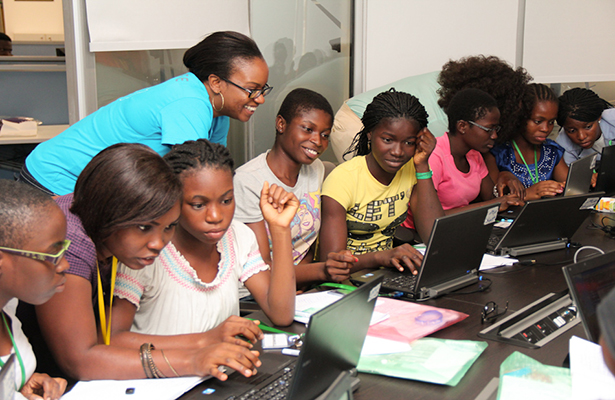In the heart of Africa lies Nigeria, a nation rich in culture, diversity, and resources. Yet, its most valuable asset is its youth—a vibrant, dynamic, and growing population that constitutes over 60% of the country’s 213 million citizens. Nigeria’s youth have the potential to drive the country’s economic and social development, but they face significant challenges, including unemployment, poverty, and inadequate education. As a result, youth empowerment has emerged as a critical focus for the country’s future.

Nigeria’s youth are grappling with numerous challenges that hinder their full potential. Unemployment is perhaps the most pressing issue. According to the National Bureau of Statistics (NBS), the unemployment rate among Nigerian youth aged 15-34 stood at a staggering 42.5% in 2023. This high rate of joblessness has far-reaching implications, contributing to poverty, social unrest, and even the brain drain phenomenon, where skilled individuals seek opportunities abroad.
In addition to unemployment, Nigerian youth face challenges in accessing quality education. Although the government has made efforts to improve the education system, issues such as inadequate funding, outdated curricula, and a lack of infrastructure continue to plague the sector. As a result, many young Nigerians are unable to acquire the skills needed to thrive in a rapidly changing global economy.

Moreover, poverty remains a significant barrier to youth empowerment. According to the World Bank, about 40% of Nigerians live below the poverty line, with young people disproportionately affected. This economic hardship limits their access to essential resources, including healthcare, education, and entrepreneurship opportunities.
In recent years, the Nigerian government has recognized the urgent need to address these challenges and has introduced several initiatives aimed at empowering the youth. One of the most prominent is the National Youth Investment Fund (NYIF), launched in 2020. The NYIF is a ₦75 billion fund designed to provide financial support to youth-led businesses, enabling them to access loans and grants to start or expand their enterprises. The initiative aims to reach over 500,000 young Nigerians by 2025, fostering entrepreneurship and reducing unemployment.
Another significant government initiative is the N-Power program, which provides young Nigerians with job training and temporary employment opportunities in various sectors, including education, health, and agriculture. Since its inception in 2016, N-Power has enrolled over 500,000 beneficiaries, equipping them with skills and work experience that enhance their employability.

The Nigerian government has also placed a strong emphasis on education, particularly through the Universal Basic Education Commission (UBEC). UBEC’s mandate is to ensure that every Nigerian child has access to free and compulsory basic education. While challenges remain, efforts to improve the education sector are ongoing, with increased funding and reforms aimed at enhancing the quality of education across the country.
In the digital age, technology and innovation are key drivers of youth empowerment. Nigeria’s tech ecosystem, often referred to as “Silicon Lagoon,” has witnessed exponential growth in recent years, with Lagos emerging as a hub for startups and tech talent. Young Nigerians are harnessing the power of technology to create innovative solutions to the country’s problems, from financial inclusion to e-commerce. The rise of fintech in Nigeria is a prime example of how technology is empowering the youth. Companies like Paystack, Flutterwave, and Kuda Bank, all founded by young Nigerians, have revolutionized the financial sector, making it easier for individuals and businesses to access financial services. These startups have not only created jobs but have also attracted significant foreign investment, contributing to the country’s economic growth.

In addition to fintech, Nigerian youth are making strides in other tech-driven sectors such as agriculture, education, and health. For instance, agri-tech startups like Farmcrowdy are empowering young farmers by providing them with access to finance, markets, and agricultural expertise. Similarly, e-learning platforms like uLesson are leveraging technology to improve access to quality education for millions of Nigerian students.
Beyond government efforts, civil society organizations and international bodies play a crucial role in youth empowerment in Nigeria. Organizations such as the Tony Elumelu Foundation (TEF) and the Youth Empowerment and Development Initiative (YEDI) are at the forefront of empowering young Nigerians through entrepreneurship training, mentorship, and financial support. The TEF, for instance, has committed $100 million to support 10,000 African entrepreneurs over ten years, with a significant portion of the beneficiaries being Nigerian youth. This initiative not only provides funding but also offers training and mentorship to help young entrepreneurs scale their businesses and contribute to the economy.

International organizations like the United Nations and the World Bank have also been instrumental in supporting youth empowerment initiatives in Nigeria. Through partnerships with the government and local NGOs, these organizations provide funding, technical assistance, and capacity-building programs aimed at enhancing the skills and opportunities available to Nigerian youth. While significant progress has been made, much remains to be done to fully unlock the potential of Nigeria’s youth. To achieve this, a multi-faceted approach is needed, one that addresses the root causes of the challenges facing young Nigerians.
First and foremost, there is a need for sustained investment in education. The government must prioritize education funding, particularly at the basic and secondary levels, to ensure that all Nigerian children receive quality education. Additionally, curricula should be updated to include 21st-century skills such as critical thinking, digital literacy, and entrepreneurship.

Secondly, efforts to create jobs must be intensified. This can be achieved through the promotion of entrepreneurship, particularly in sectors such as agriculture, technology, and creative industries. The government should also create an enabling environment for businesses to thrive by improving infrastructure, reducing bureaucratic hurdles, and providing access to finance.
Finally, youth participation in governance should be encouraged. Young Nigerians must be given a voice in decision-making processes at all levels of government. This can be achieved through the inclusion of youth representatives in political parties, government advisory boards, and other decision-making bodies.





